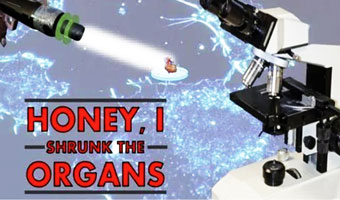
Nothing could have prepared Rabbi Jonathan Halpern, 67, from suffering a stroke that quickly paralyzed his left side. Fortunately, the physicians at Hadassah Ein Kerem were totally prepared to deal with its effects and reverse the damage.
A well-known figure in Jerusalem, where he teaches at the prestigious Mir Yeshiva, Rabbi Halpern went to synagogue, ate breakfast, and then went to the Mir Yeshiva Study Hall to teach. “I sat in my usual seat and felt ill,” he said. “I was dizzy and those sitting next to me asked if I was feeling okay. They immediately realized that something was the matter because I wasn’t sitting upright or speaking clearly.”
He was sweating and unable to lift his cell phone. “Within minutes I was in an ambulance. I heard one of the paramedics say, ‘Quick to Hadassah!’ and the next thing I remember was undergoing a CT scan,” said Rabbi Halpern.
Prof.José Cohen, Director of Hadassah’s Endovascular Neurosurgery Unit and a global pioneer in cerebral catheterization, said, “Protocol for a suspected major stroke is clear: The catheterization lab is immediately prepped, and the patient receives priority for screening and imaging scans in CTs or MRIs. The goal is to begin an invasive procedure, where necessary, within 30 minutes of the patient arriving at Hadassah. In this case, Rabbi Halpern was in the catheterization lab 20 minutes after arriving at Hadassah. There is no doubt in my mind that the fast work of the paramedics, their quick drive to Hadassah, and the rapid work by the Hadassah medical personnel tilted the scales in our patient’s best interests. This is why Hadassah put the brain catheterization labs a few yards from the CT screening rooms.
In this case, Prof.Cohen successfully completed the complex cerebral catheterization for Rabbi Halpern within six minutes.
Menachem Rosak, the Magen David Adom paramedic at the scene, said, “When we arrived at the Mir Study Hall and saw Rabbi Halpern conscious but lying on a bench, we suspected a stroke. He had to make it to the catheterization lab as soon as possible in order to prevent irreversible brain damage. MDA protocol and available technology enabled us to update the staff at Hadassah while enroute so as not to delay treatment when arriving at the hospital. At Hadassah, Prof. Cohen and the neurological medical staff were waiting for us and immediately gave the patient a CT scan and continued his medical treatment. It was exciting for me to help give this patient the opportunity to live a normal life. This is an example of how quick medical treatment can prevent any neurological damage.”
Because of the quick and accurate treatment he received, Rabbi Halpern was sitting in bed in the Neurology Department studying Torah the day after the stroke and catheterization. “My son, who was with me in the ambulance, told me how quickly everything happened. At Hadassah, the staff is dedicated and the treatment is extraordinary. There is no doubt in my mind that this was a miracle. The professionals at Hadassah are messengers of God saving me so quickly.” Days later the rabbi was released to his home, and his prognosis is excellent.
Learn more about the Hadassah Medical Organization.









